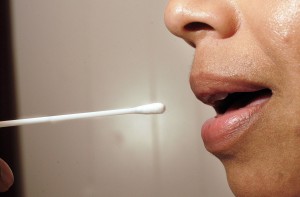
The 9th U.S. Circuit Court of Appeals has dealt civil liberties groups a setback in their attempt to overturn California's law on collecting DNA from anyone arrested for a felony.
An 11-judge en banc panel denied an appeal for a preliminary injunction in a class-action suit filed by the American Civil Liberties Union of Northern California. The panel rejected the appeal in light of a U.S. Supreme Court decision last year that upheld a Maryland law that's similar, though less sweeping, than the California statute.
The state law, authorized by the passage of Proposition 69 in 2004, requires law enforcement to collect and retain DNA samples from anyone arrested for a felony offense, including attempted crimes, whether or not charges are dropped or suspects are acquitted. The DNA is then added to law enforcement DNA databases. The rationale: to make it easier for police to identify subjects and unravel unsolved crimes.
(How many arrestees is that? The most recent numbers from the state Department of Justice report 429,807 felony arrests in California in 2012. By one estimate, about a third are not convicted or are never charged. Given those numbers, you can make a modest guess that in 2012, tens of thousands of people never found guilty of a felony had their DNA taken and stored in criminal databases.)
The ACLU and supporters, including San Francisco's Electronic Frontier Foundation, contend the law violates the Constitution's Fourth Amendment ban on unreasonable searches and seizures — and is fundamentally different from the Maryland law — because it's so broad and because the state keeps DNA samples on file indefinitely even if suspects are never formally charged or convicted.